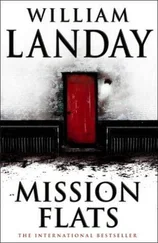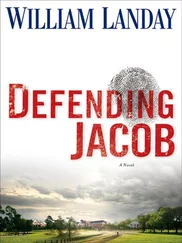William Landay - The Strangler
Здесь есть возможность читать онлайн «William Landay - The Strangler» весь текст электронной книги совершенно бесплатно (целиком полную версию без сокращений). В некоторых случаях можно слушать аудио, скачать через торрент в формате fb2 и присутствует краткое содержание. Жанр: Триллер, на английском языке. Описание произведения, (предисловие) а так же отзывы посетителей доступны на портале библиотеки ЛибКат.
- Название:The Strangler
- Автор:
- Жанр:
- Год:неизвестен
- ISBN:нет данных
- Рейтинг книги:4 / 5. Голосов: 1
-
Избранное:Добавить в избранное
- Отзывы:
-
Ваша оценка:
- 80
- 1
- 2
- 3
- 4
- 5
The Strangler: краткое содержание, описание и аннотация
Предлагаем к чтению аннотацию, описание, краткое содержание или предисловие (зависит от того, что написал сам автор книги «The Strangler»). Если вы не нашли необходимую информацию о книге — напишите в комментариях, мы постараемся отыскать её.
The Strangler — читать онлайн бесплатно полную книгу (весь текст) целиком
Ниже представлен текст книги, разбитый по страницам. Система сохранения места последней прочитанной страницы, позволяет с удобством читать онлайн бесплатно книгу «The Strangler», без необходимости каждый раз заново искать на чём Вы остановились. Поставьте закладку, и сможете в любой момент перейти на страницу, на которой закончили чтение.
Интервал:
Закладка:
Cronkite again appeared on screen, unruffled by all this troubling news: “Evidence to be detailed later in the program indicates that the gross income of the key store in Boston may have exceeded twenty-five thousand dollars a week. That’s a million and a half dollars a year, and that’s no penny-ante operation by any means. But there are larger bookie operations. Experts generally agree that illegal off-track bookmaking is a multi-billion-dollar-a-year business. And the experts also agree on another thing: illegal gambling cannot flourish for long unless it is protected.”
A montage of police officers ambling in and out of the key shop, all in full uniform, including motorcycle officers in jackboots and jodhpurs, and traffic cops in white hats.
A narrator’s voice: “Some government estimates put the cost of police protection at fifty percent of the net profits of the gaming operation. Several bookies told us the costs were getting so high that it was becoming more a police business than a bookie business.”
More cops were shown coming and going. One was temporarily impeded by the trash can full of smoldering betting slips, which a bookie kindly moved out of his way. The cop tipped his cap to the bookie.
Cronkite, voice-over: “From June the first to June third, 1963, we filmed ten members of the Boston police force entering or leaving the key store. We don’t know why they came to the key store or what they did inside. We only know that they were there.”
A man in plain clothes came out of the key shop. Big guy with a barrel torso. He wore a dark coat, open collar, and flat-brim fedora.
“Oh my God-” Kat muttered.
But Cronkite cut her off. “The man coming out of the door now is a detective. We found that he comes from Station Sixteen, Boston Police Department, just a few blocks away.”
The camera lingered on Joe as he loitered on the sidewalk outside the shop. He looked, even to the Daleys, like the very face of police corruption.
“Oh my God,” Kat repeated. She had covered her mouth with both hands, as if to catch any words that might slip out.
Cronkite: “Other Boston police officers were seen entering the key store during the course of our investigation. We must emphasize again that we do not know the nature of their business in the key store.”
A white-haired gent appeared onscreen to opine on the matter of cops and bookies: “I think most of the policemen on the Boston Police Department are honest and want to do their sworn duty. However, some of them have been in touch with me, by calls and letters, and have written on police department letterhead, although unsigned, about suspected illegal gambling operations which they hope we will do something about.”
And Cronkite again, now in close-up. “It has been said that police corruption can be found in every city where illegal gambling flourishes. The story has been told in headlines from cities across the nation time and time again. It is in part an answer to the question ‘What harm can there be in a little two-dollar bet at the corner bookie?’”
“Fuckin’ Walter Cronkite.”
“Shush, Joe!”
“What, Mum? He can’t just-I mean, for Christ’s sake, I went in there for a key!”
Ricky snorted.
“Yeah?” Michael asked. “A key to what?”
“What is this, cross-examination? I needed a key. So what?”
Margaret turned to Amy as a representative of the news media. “Amy, can they do this? Just, just put up someone’s pitcher like that and say whatever they want?”
Amy made a fatalistic shrug and turned her palms up. What can you do?
Now the program displayed a banner headline from the Boston Traveler, “Commr. Sullivan May Be on Probation,” with the subhead “Volpe Has His Eye on Him.” Cronkite in voice-over: “…At a press conference Governor John A. Volpe said he expects the Boston police commissioner to fulfill his responsibilities in full compliance with the law.”
Cronkite appeared onscreen again, in the wood-paneled studio. “We extended an invitation to Boston Police Commissioner Leo J. Sullivan to appear on this program to comment on the difficulties facing local police departments in coping with illegal gambling as reflected by the history of the key shop operation. Commissioner Sullivan has replied to our invitation with a letter outlining problems confronting local police. He points out that legalized on-track betting stimulates illegal off-track betting; that placing a bet off-track is not an offense; and that bookmaking is only a minor misdemeanor.”
“Yeah, okay, Commissioner, I’m sure that’s gonna be good enough.”
“Shush, Ricky.”
Cronkite: “He went on to say that the local police administrator has limited manpower and funds, and that the combined efforts of all law enforcement agencies have failed to dent the framework of illegal gambling. ‘It would therefore be a grave injustice,’ said the police commissioner, ‘to denigrate an entire police department and to destroy the public image created by the fine accomplishments of many dedicated police officers on the basis of one such gambling establishment. In the final analysis, the people of this and every other community must come to the realization that it is their small individual bet that finances the illegal gambling empire and complete enforcement is not possible without the active assistance of all good citizens.’ Those were the words of Boston Police Commissioner Leo Sullivan.”
“What a fuckin’ rat,” Joe said.
The camera moved in on Cronkite. “At this point you may be inclined to say, ‘Well, those people in Boston certainly have their problems.’ Don’t deceive yourself. The chances are very great you have the same problem in your community. This is Walter Cronkite. Goodnight.”
The Daleys were silent.
The TV prattled awhile-“A word about the next CBS Reports in a moment…”-until Amy shut it off.
“Fuckin’ Walter Cronkite,” Joe muttered.
“Stop that.”
“Fuck Walter Cronkite.”
“Stop it. It’s not Walter Cronkite’s fault.”
“Well, it’s not true.” Joe seemed to believe in the transformative power of his own confidence. A thing was not true because Joe Daley said it was not true. “They’re not gonna get away with this.”
Amy said, “If you know any good lawyers, Joe…”
“Why do I need a lawyer? I didn’t do anything. I just got done telling you.”
“Joe,” Michael advised softly, “call Brendan.”
7
The hearing looked like a trial but it wasn’t. It was a bag job. The “judge” was a deputy appointed by the Commissioner, serving at the pleasure of the Commissioner, there to do the Commissioner’s bidding. The prosecutor was an I.A. lieutenant whose evidence consisted of a transcript of the CBS documentary and not much else. Joe had been forced to hire a lawyer, a shifty shyster he knew from the BMC, who made a few desultory objections. But everyone knew the verdict. Walter Cronkite had announced it on TV: Joe Daley was a bag man for the crooked cops in Station Sixteen. The inconvenient fact that the charge was true did not make the whole thing any easier for Joe to take.
After he testified, Joe paced the hallway on the sixth floor of BPD headquarters, where the hearing took place. There were no reporters, no crowds. It was a family matter, for now.
Brendan Conroy was still inside, shilling for Joe. His muffled voice carried through the door: Joe was a good kid, a good soldier. Third-generation Boston police. Son of a fallen cop. No one was defending what the kid did, of course. Of course. But then, there was honor in the way Joe’d come in there and kept his mouth shut and refused to roll over on anyone. Now, there was a time when cops were brothers, let’s remember. Did they mean to throw out the baby with the bath water? Did they really want to lose a kid like Joe Daley? Let’s not be more Catholic than the Pope here, fellas-if they were going to start canning every cop who ever took a few bucks, or who ate dinner at the kitchen door of a restaurant, well, let’s face it, before long there wouldn’t be a police department left. Anyway, the last Brendan Conroy had heard, Walter Cronkite had not been appointed commissioner of the Boston police.
Читать дальшеИнтервал:
Закладка:
Похожие книги на «The Strangler»
Представляем Вашему вниманию похожие книги на «The Strangler» списком для выбора. Мы отобрали схожую по названию и смыслу литературу в надежде предоставить читателям больше вариантов отыскать новые, интересные, ещё непрочитанные произведения.
Обсуждение, отзывы о книге «The Strangler» и просто собственные мнения читателей. Оставьте ваши комментарии, напишите, что Вы думаете о произведении, его смысле или главных героях. Укажите что конкретно понравилось, а что нет, и почему Вы так считаете.












